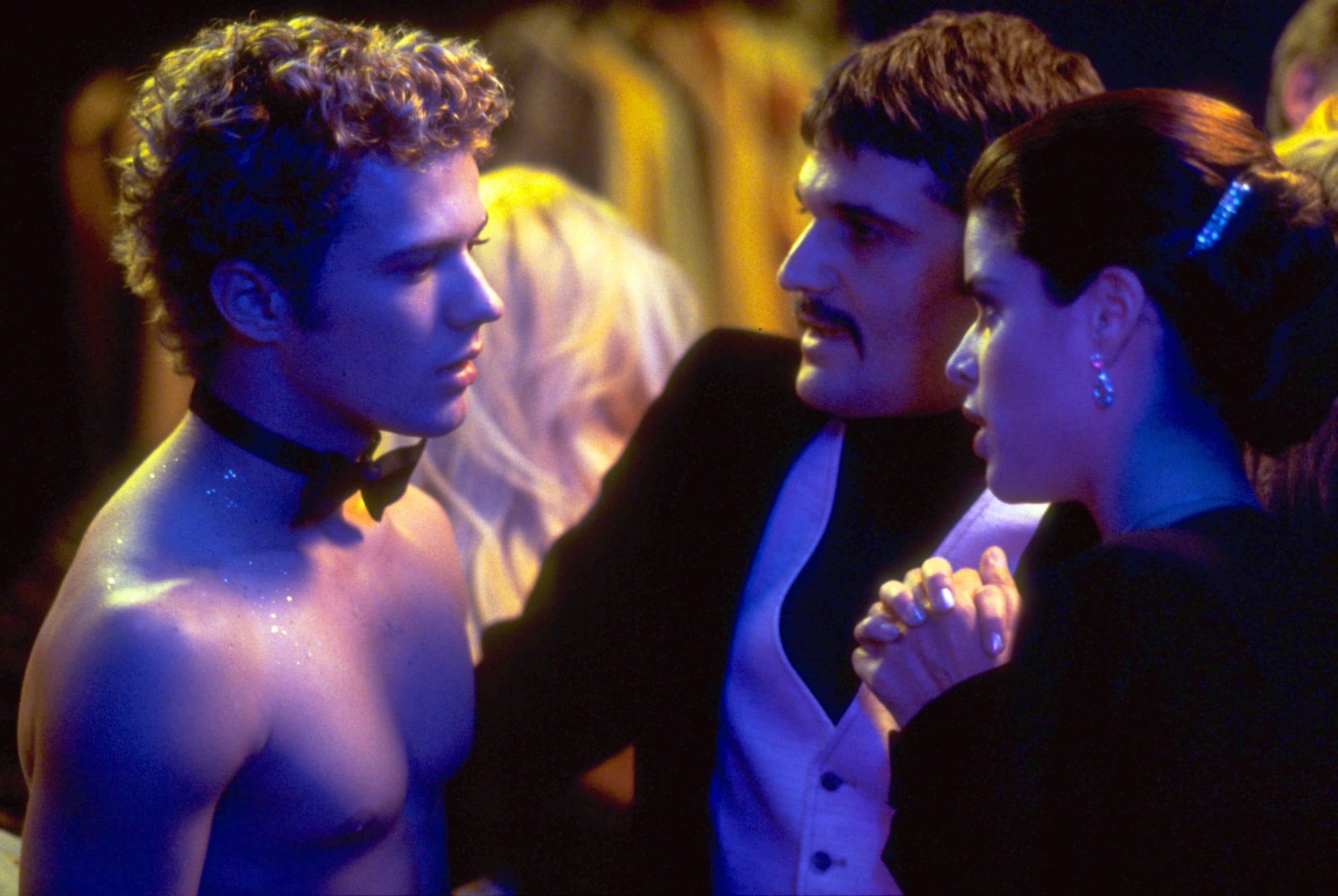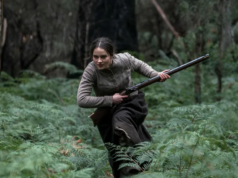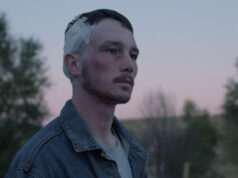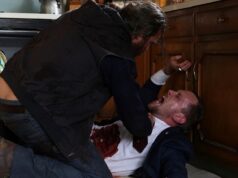This newly-restored original cut of 54 is remarkably different from the 1998 theatrical version, especially with regard to what it wants to say

54: The Director’s Cut (1998/2015)
Written and directed by Mark Christopher. Starring Ryan Phillippe, Salma Hayek, Neve Campbell, Mike Meyers, Breckin Meyer, Sela Ward, Sherry Stringfield, Cameron Mathison, Heather Matarazzo, Skipp Sudduth, Mark Ruffalo, Lauren Hutton, Michael York and Ellen Albertini Dow.
When 54 came out in 1998, it was a complete failure with both audiences and critics. For a film about a disco-era Manhattan nightclub that became famous for only allowing in those who looked “glamorous” enough, it was clear that 54 had very little glamour and was just uninteresting and vapid. In fact, everything in it looked toned down to meet the expectations of a mainstream audience unused to hedonism, bisexuality and drug use in cinema.
But for those who don’t know it, director Mark Christopher is not really the one to be blamed. What happened was that the studio (Miramax Films) ordered cuts to be made in his initial cut after it was met with negative reactions at a test screening, forcing him to reshoot 25 minutes of new scenes to replace 45 minutes that were excised from the film. The result was a harmless movie full of poorly-developed characters we couldn’t care less about.
17 years later, however, Christopher decided to put the film together the way he originally intended it to be. He removed the reshoots, restored the deleted material and recorded a new voice-over with main actor Ryan Phillippe. Miramax gave the green light, and 54: The Director’s Cut premiered at the Berlin International Film Festival in 2015, garnering positive reviews. No wonder, since it is infinitely superior in terms of character development, theme and tone, and even its message differs entirely from the theatrical version’s.
For those who haven’t seen the theatrical one, 54 (also known as Studio 54) takes place in the late 1970s and follows Shane O’Shea (Phillippe), a fictional Jersey City young man who dreams of dancing free among the cool ones at the real-life nightclub Studio 54, owned by Steve Rubell (Mike Meyers). Shane is unquestionably handsome and not bright (“the most gorgeous troglodyte,” as someone calls him), which makes him the perfect choice for a bartender at the club. Once working there, he befriends aspiring singer Anita (Salma Hayek) and her jealous husband Greg (Breckin Meyer), getting quickly dragged into a life of drugs, sex and partying.
Right off the bat, the most noticeable difference in this new version is the glamour. Even the new opening narration, with a 40-year-old Ryan Phillippe sounding a lot more cynical than his younger self, adds to the whole feel of disco decadence that the film is supposed to be about. At Studio 54, a place that saw the likes of Truman Capote, Andy Warhol and Grace Kelly, everyone is a star — and the blinding, overwhelming sensuality of such a daring palace is emphasized by the movie’s almost preternatural use of intense blue, purple and red lights that bathe the bartenders’ godlike sweaty bodies. The music is simply amazing, and anyone at the club is free to consume as many drugs as they so desire and be whoever they wish to be.
It is great to see now all the nerve that had been left out in favor of an inoffensive approach, including the cusswords, drug abuse, homosexual sex and questionable characters that were missing. Sean’s father, for instance, is shown as a horribly racist and homophobic person, while Christopher doesn’t mind showing his protagonist as a promiscuous man who steals from his boss and even has sex with an unconscious woman (all of that was removed for the theatrical version, and Greg became the thief). Likewise, the original love triangle between Sean, Anita and Greg is brought back as the main focus of the narrative, and Neve Campbell is now reduced to the small role she was always supposed to have.
Leading the cast, Ryan Phillippe does a decent job as an impulsive young man who is awestruck by glamour, while Salma Hayek is perfect as an ambitious woman who wouldn’t mind going to bed with someone famous if that meant a career opportunity — and I love when she tries to look elegant smoking a cigarette at a certain fancy dinner. And if Ellen Albertini Dow is amusing as the foul-mouthed old granny Disco Dottie, it is Mike Meyes who steals the show in his first serious role as the soft-spoken and wild Steve Rubell, who nearly eats drugs for breakfast, grinding his teeth and looking even delirious at some moments.
Despite how Sean’s opening narration is unnecessary and never heard again (an obvious but minor flaw), it makes 54: The Director’s Cut almost feel like a documentary — and the film resurrects scenes from VHS copies that sometimes look like authentic archive footage from the time, which adds to the result. Even better is seeing that this version throws in the garbage the cheesy and implausible ending of the theatrical version (which tried to be optimistic by forcing us to accept that those empty characters were ever friends) and ends in a completely different way by showing instead how people can stand by each other when the glamour palace falls down.
And that is so much more interesting, mature and worthy of seeing than the mediocre version that Miramax insisted on. I only hope that Mark Christopher is happy now that people can finally see what he had in mind in the first place, because 54: The Director’s Cut is definitely better than anyone could have expected.




